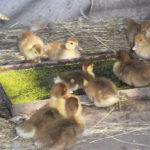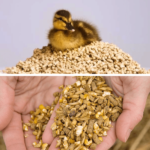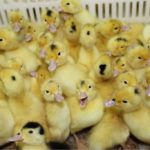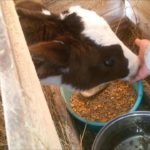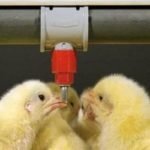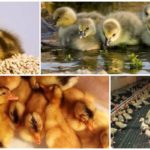Little ducklings that have just emerged from the egg are not resistant to diseases. In poultry farming, it is customary to feed chicks with antibiotics to avoid their death at a very early age. Let's consider what you can give ducklings to drink in the first days of life at home, what drugs to choose for prevention and how to carry out the procedure correctly.
Should ducklings be treated with antibiotics?
Drinking with antibiotics is carried out to prevent infectious diseases to which ducklings are susceptible already in the first days after hatching from the egg.According to practical observations of poultry farmers, it turns out that up to 40% of chicks die without treatment. Representatives of hybrids and crosses are especially vulnerable.
Table of drugs for prevention
Poultry farmers use different preparations; each has its own feeding scheme. Some limit themselves to drinking a weak solution of iodine or iodinol. Blue iodine is safe for birds and does not cause irritation in the gastrointestinal tract. The product is high-quality, inexpensive, and after use there is no need to feed the ducklings with probiotics to restore the microflora.
Ducklings should be watered only with products specifically designed for birds. Antibiotics intended for humans are not suitable for them.
The use of some antibiotics and dosage can be seen in the table. But these are not all the products that can be purchased at the pharmacy. You can find out from your veterinarian what is best to give to chicks.
| A drug | Dosage | Course of application |
| "Noroflox" 10% | 0.1 ml per 1 kg of weight or 0.5-1 ml per 1 liter of drinking water | 3 days (5 days from salmonellosis) |
| "Farmazin" | 1 g per 1 l | 3 days |
| "Tromexin" | 2 g per 1 liter on the first day and 1 g per 1 liter on the 2nd and 3rd days | 3 days |
How to solder correctly?
There are several schemes for feeding ducklings with antibiotics. For some of them, the course begins from the first day of life, for others the ducklings are given the opportunity to get a little stronger. This is due to the fact that antibiotics are powerful drugs that significantly affect the functioning of the digestive organs and especially the intestines.The disadvantage of this method is that if the ducks become infected, treatment will have to be started, and even then not all can be helped. If you don’t want to take risks, you can give ducklings a weak solution of potassium permanganate for 0 to 10 days.
With a basic drinking regimen, antibiotics alternate with vitamins; the course of treatment lasts 15 days. On the first day of life, ducks receive glucose and a vitamin preparation, then on days 2-5 they drink an antibiotic solution. Then, from days 5 to 8, again vitamins and a complex of mineral elements, and on days 14 and 15 - again bactericidal agents.
After completing the course of antibacterial prophylaxis, the chicks need to be given probiotics, which will normalize the intestinal microflora. After this, the preparation of ducklings for raising can be considered complete.
Feeding young poultry has long been a practice among poultry farmers. Many people believe that they can’t do without it. The industry produces a range of drugs designed specifically for poultry. You can choose one of them and use it to prevent infectious diseases in your duck population.



